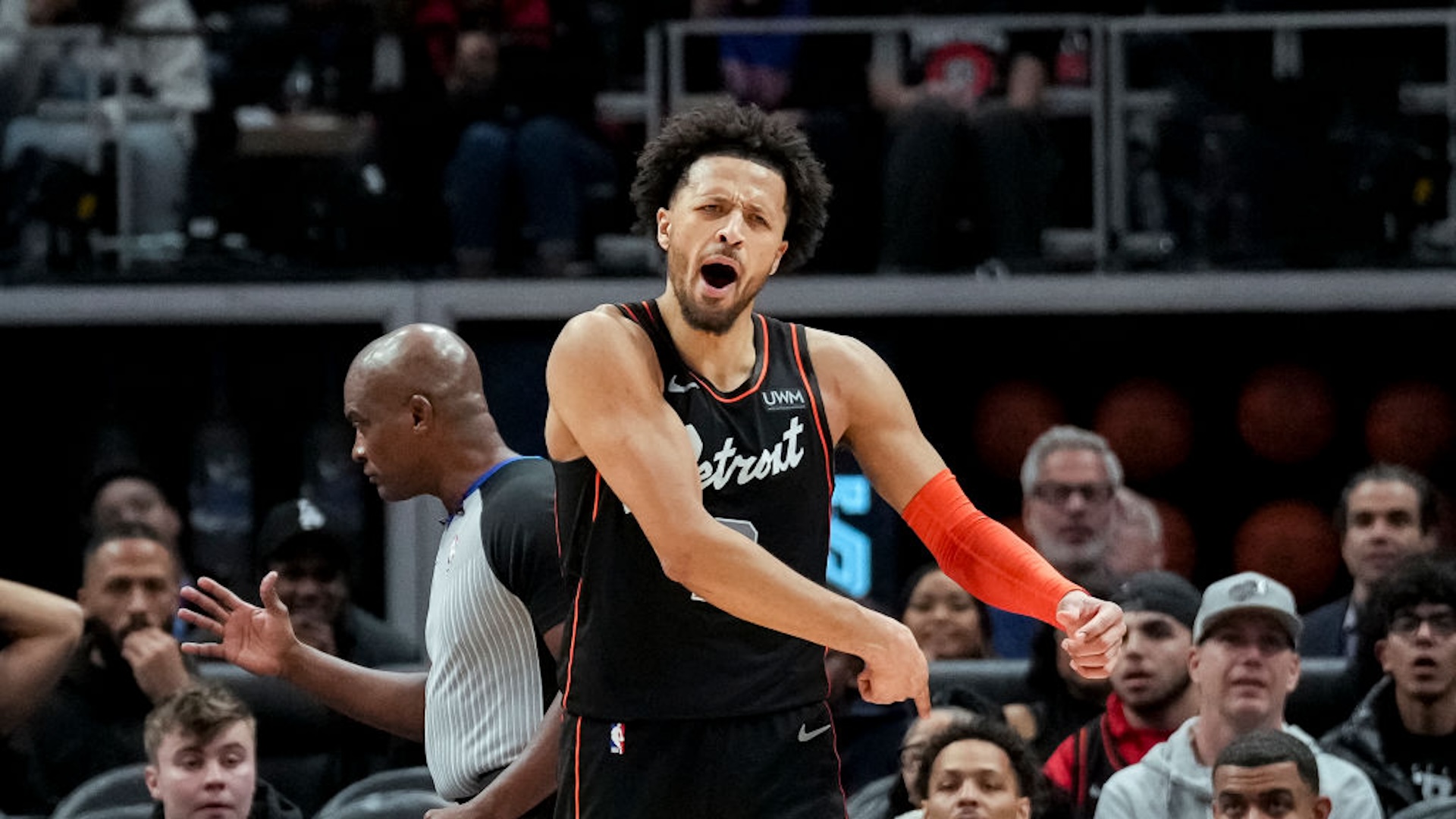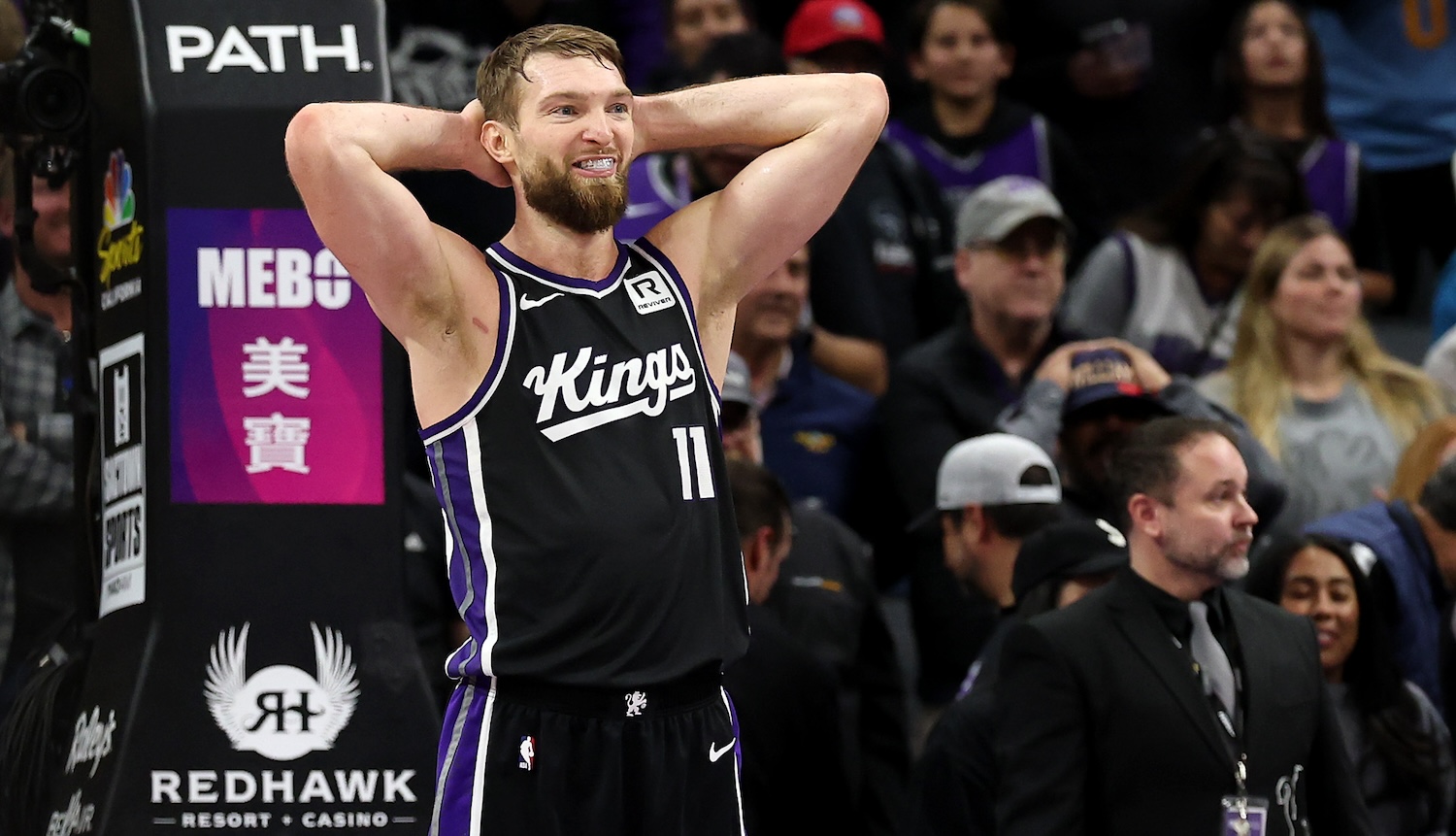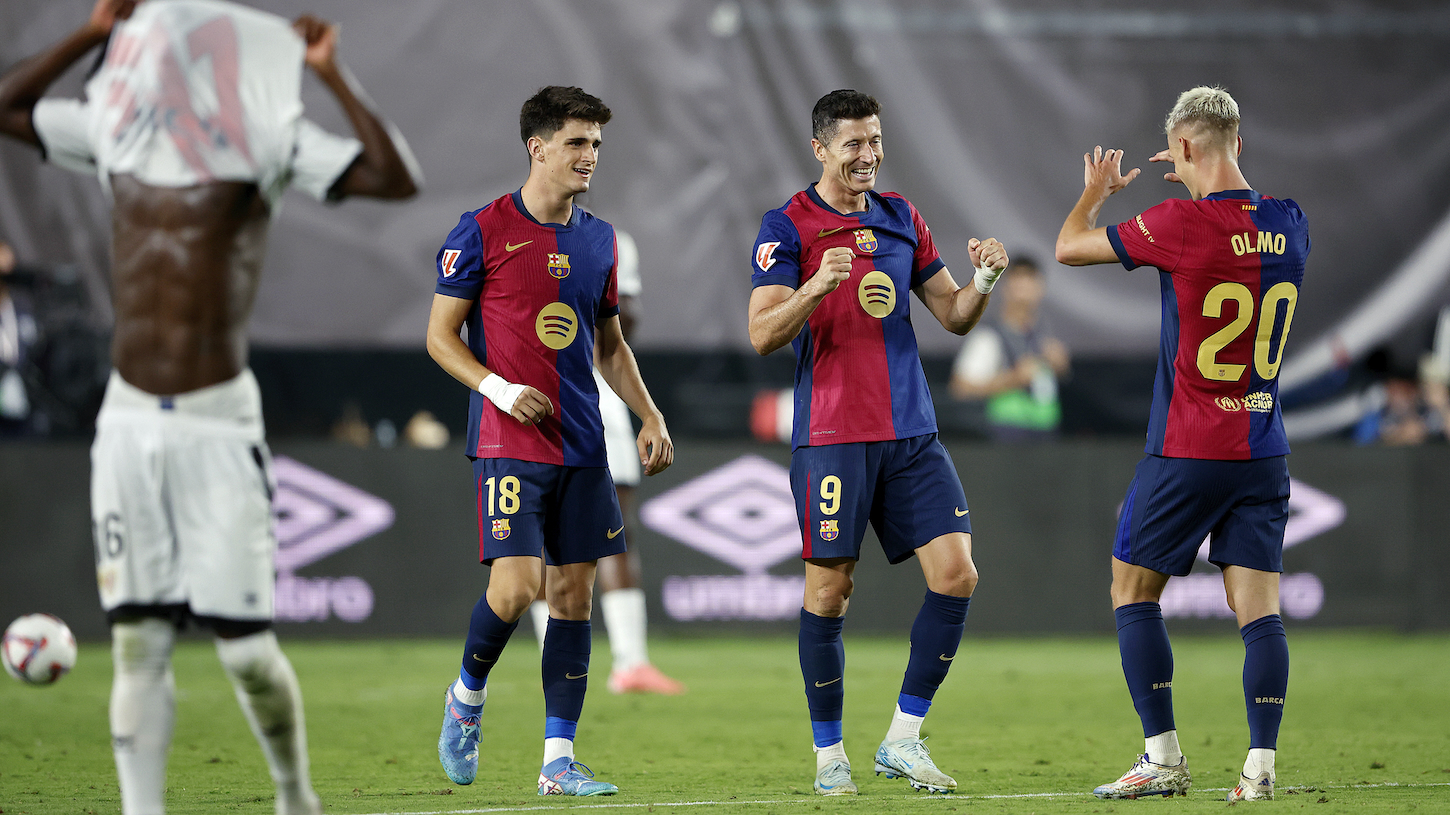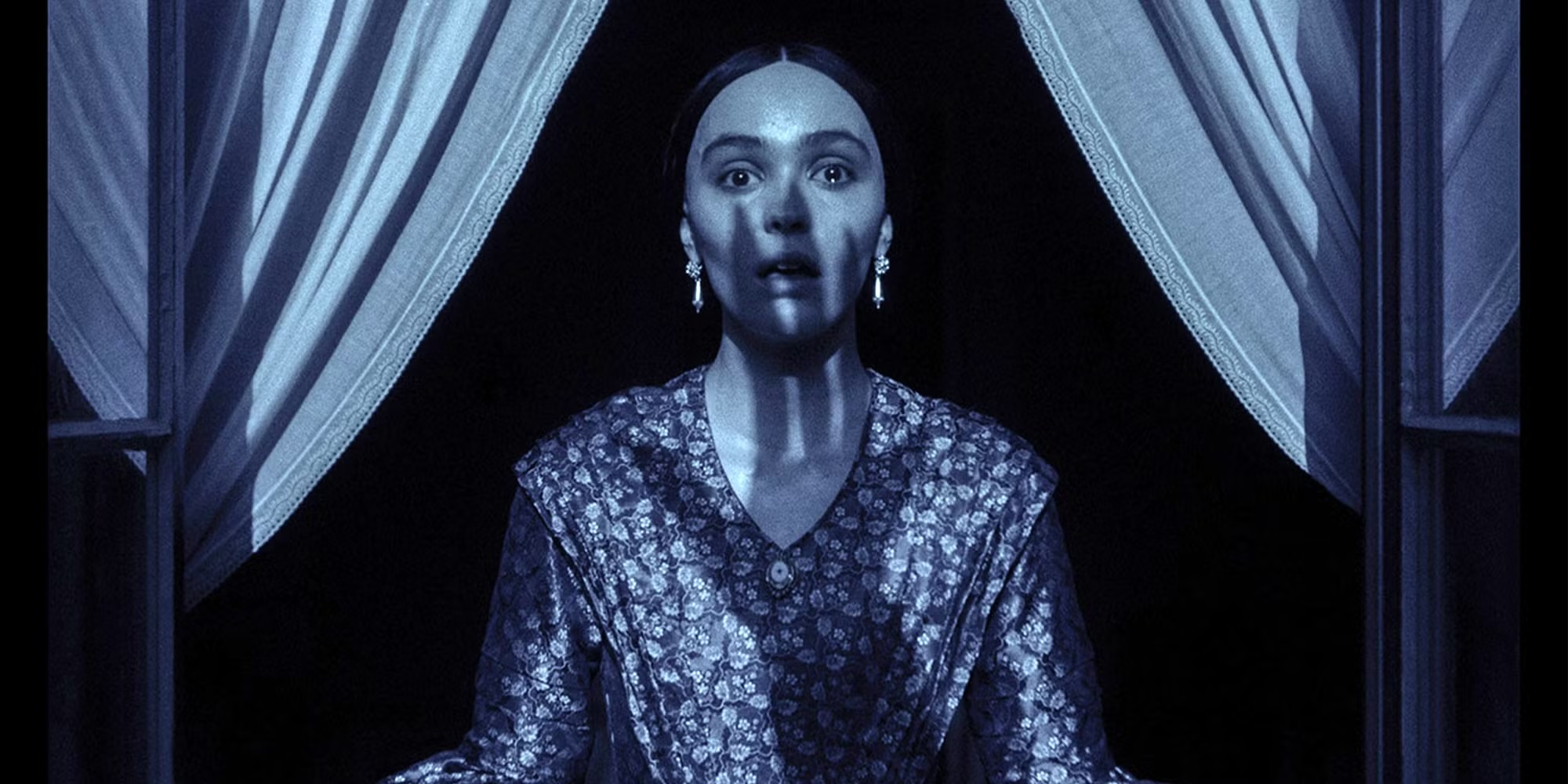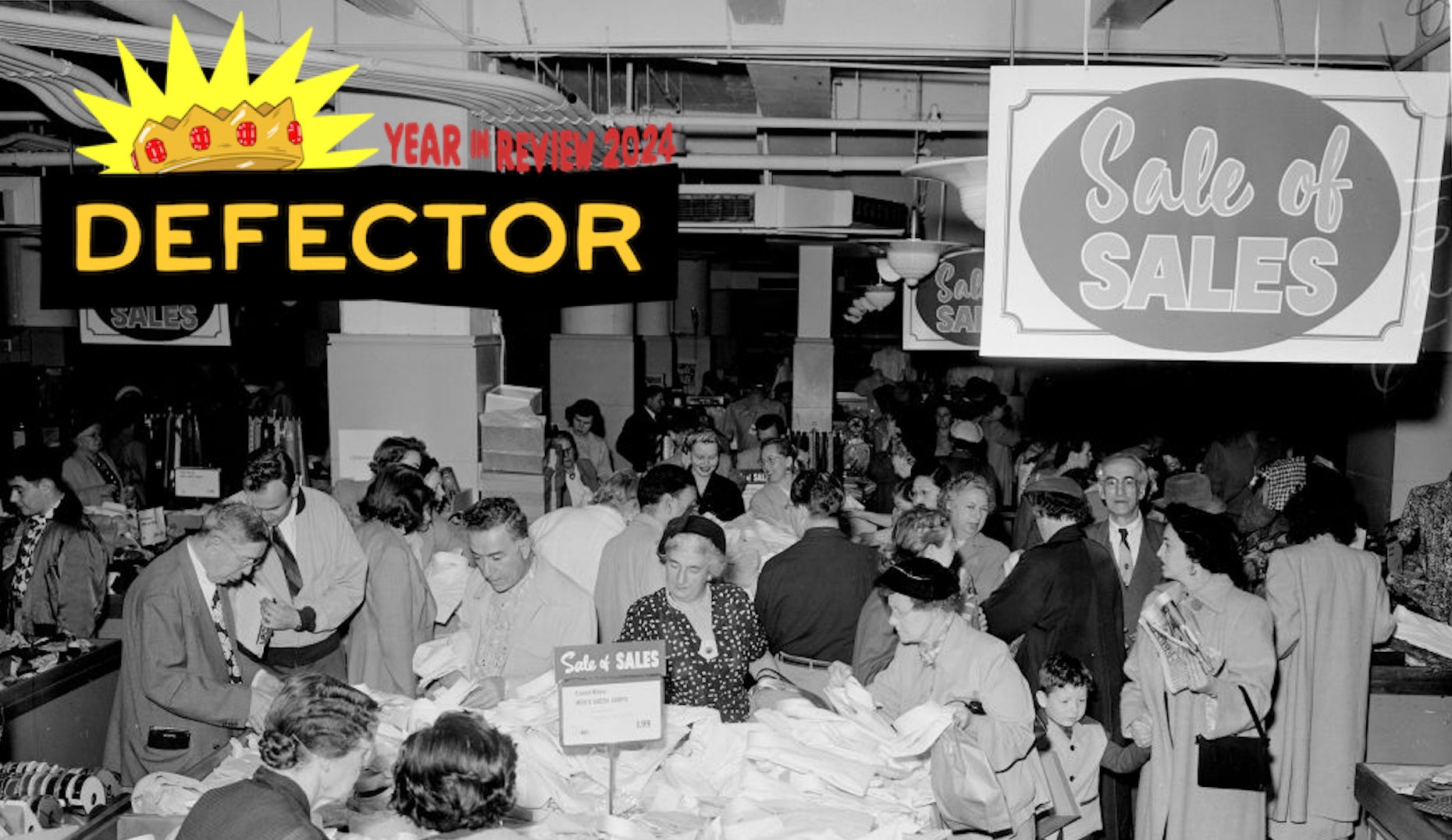Well, that'll do it. Thanks to a 118-112 loss to the Brooklyn Nets on Tuesday night, the Detroit Pistons stand alone atop loser mountain. They have now lost 27 consecutive games, beating out the previous feats in loserdom set by the post-LeBron Cavaliers and the Process-addled Sixers.
Tuesday's loss stung not just for the record it broke, but for how it unfolded. Detroit jumped out to a 20-7 lead in the first quarter, and even stayed committed to the cause after that lead evaporated. They were up by five with eight minutes left to play, at which point the Nets went on a 26-15 run to close the game. After the buzzer sounded, the remaining home fans broke out into a "Sell the team!" chant.
A 27-game losing streak can't be concisely explained—there are far too many interlocking failures to wrap one's head around—but one area of focus has been the performance of former No. 1 overall pick Cade Cunningham. He's been fine, mostly, and putting up decent numbers, but the length of this losing streak has made it impossible not to ask questions about how much juice he really has. At some point, if you're an actual future superstar, you have to find a way to singlehandedly end a two-month losing streak. Last night, Cunningham finally seemed to wake up to this reality, which ultimately only made the loss even more dispiriting.
Cunningham played the game of his life, scoring 41 points on 15-of-21 shooting while grabbing nine rebounds and handing out five assists. After a quiet first half in which he scored only four points, he spent the second half playing with moonbeams shooting out of his eyes. Cunningham played all 24 minutes of the second half, missed just three of the 16 shots he took, and scored 37 points. With just under a minute left to play, he made a driving layup to bring the Pistons within two points, at which point Dorian Finney-Smith hit a three to put the Nets back up by five, 115-110. That's when Pistons head coach Monty Williams, whose big-ass contract will pay him $13 million this year, called a timeout and drew up a play for ... uh ... Alec Burks?
Cade out here playing for his life and Burks chucks a contested 3.
— BrickMuse (@BrickMuse) December 27, 2023
Killed the Pistons chances. pic.twitter.com/f11hMPwdne
It takes a lot of discrete, cascading failures to get to 27 straight losses, and "Alec Burks taking a deep contested three while down five with 38 seconds to play" will enjoy its place at the top of the pile for now, at least until the Pistons tip off against the Celtics on Thursday.
As distressing as it was to see the Pistons still find a way to lose despite getting a heroic and efficient 41 points from their best player, it was a loss that perfectly encapsulates this particular stretch of Pistons struggleball. You have to be bad in a pure, unadulterated way to lose a game like that, and the Pistons are medical-grade bad. The teams that previously plunged to these horrible depths at least had some sort of complicating factor to point to as a reason for their losing. The 2010–11 Cavaliers were still walking around in a daze caused by LeBron James's evacuation, and the 2013–14 Sixers were trying to lose on purpose, to such a degree that a 26-game losing streak was a point of pride. But the 2023–24 Pistons are just bad. Everyone involved in the construction of this team, which is stocked with former lottery picks and overseen by one of the highest-paid coaches in the league, was singularly focused on making this team not bad, and yet it is one of the worst teams we've ever seen.
Sports gives us all kinds of opportunities to talk about and examine greatness, to marvel at moments in time in which everything clicks into place and a team succeeds in such a way as to make it hard for observers to put into words what they are witnessing. But failure can be that way, too. This is a failure that exists outside of our understanding. Maybe the Pistons should put it on a banner.
